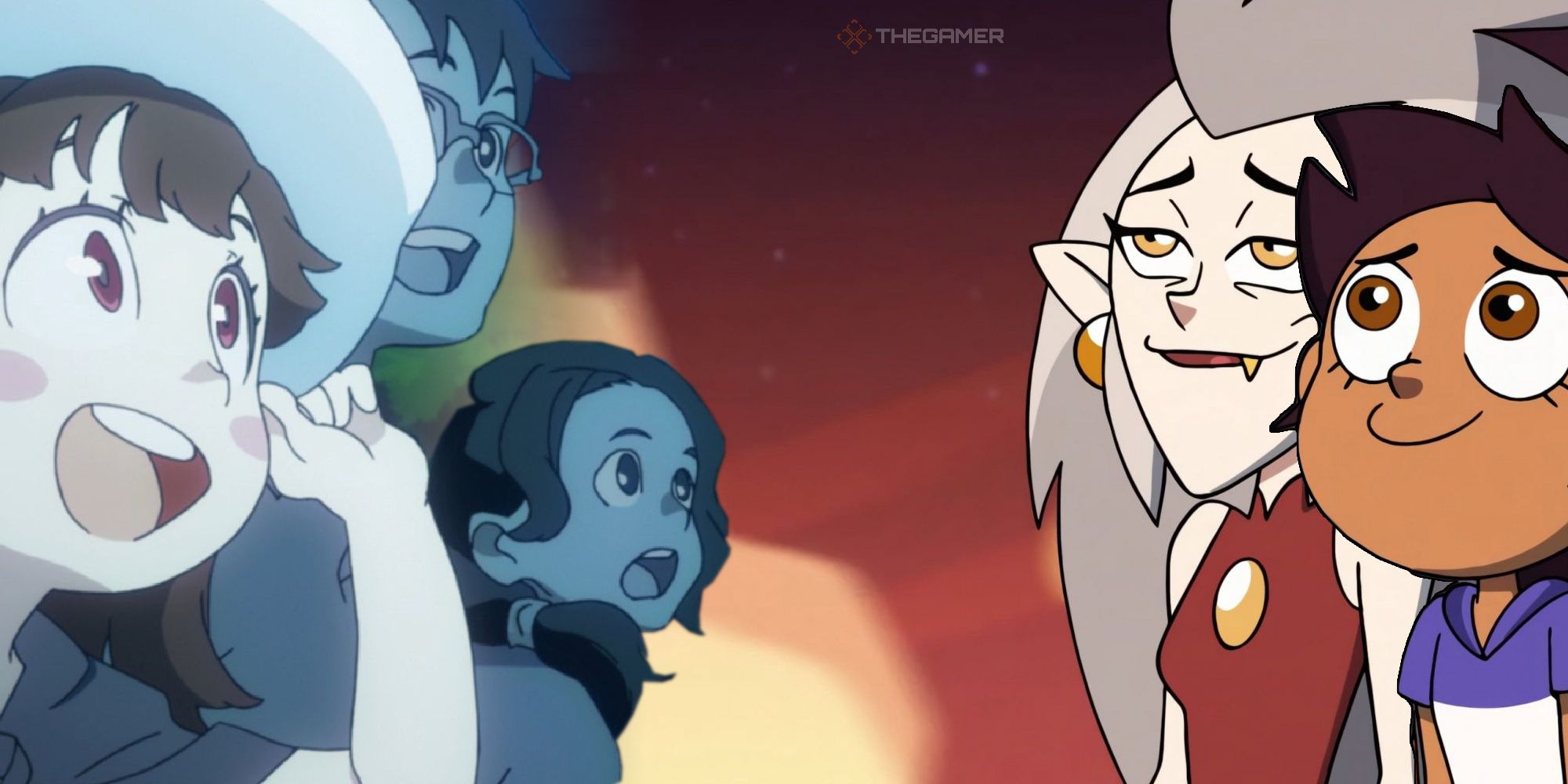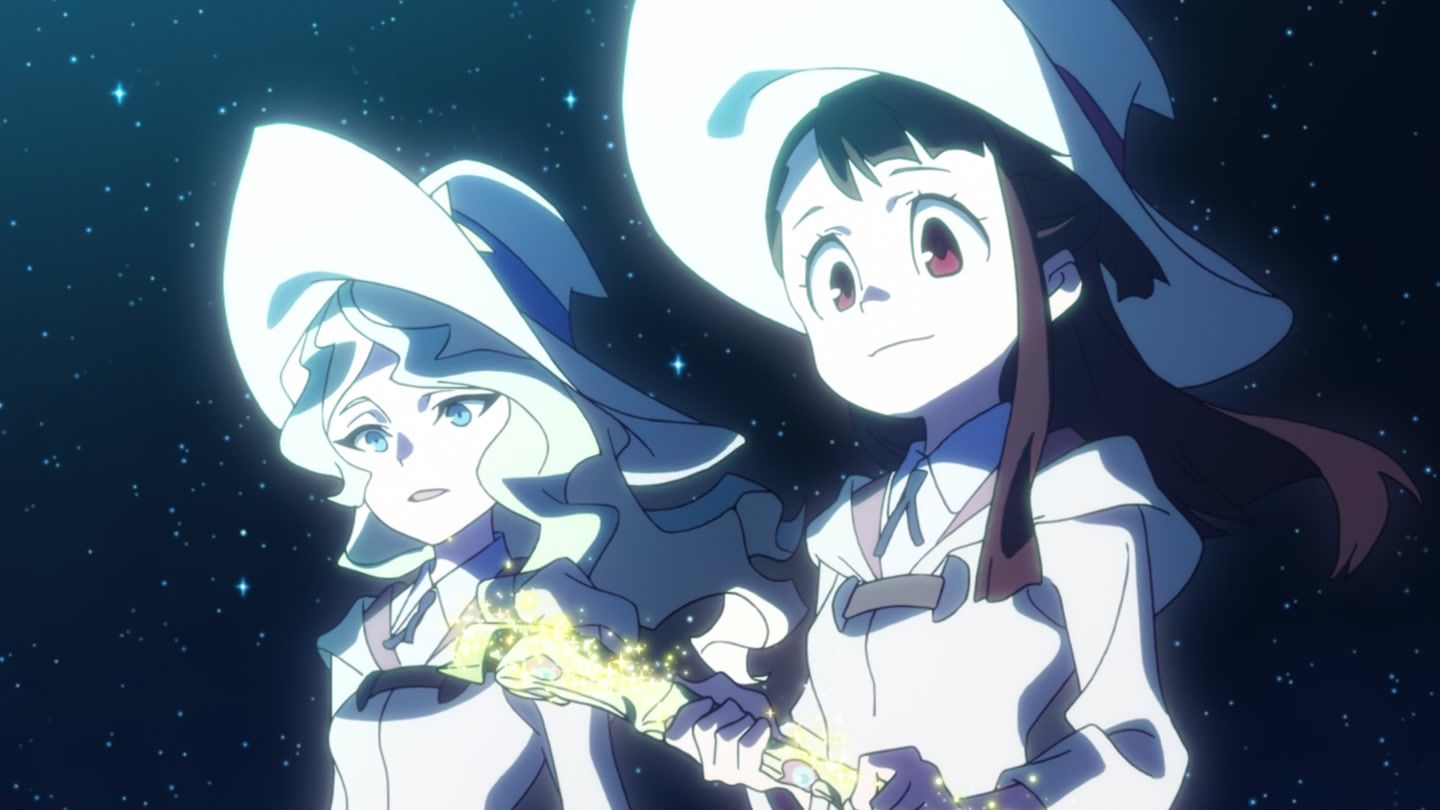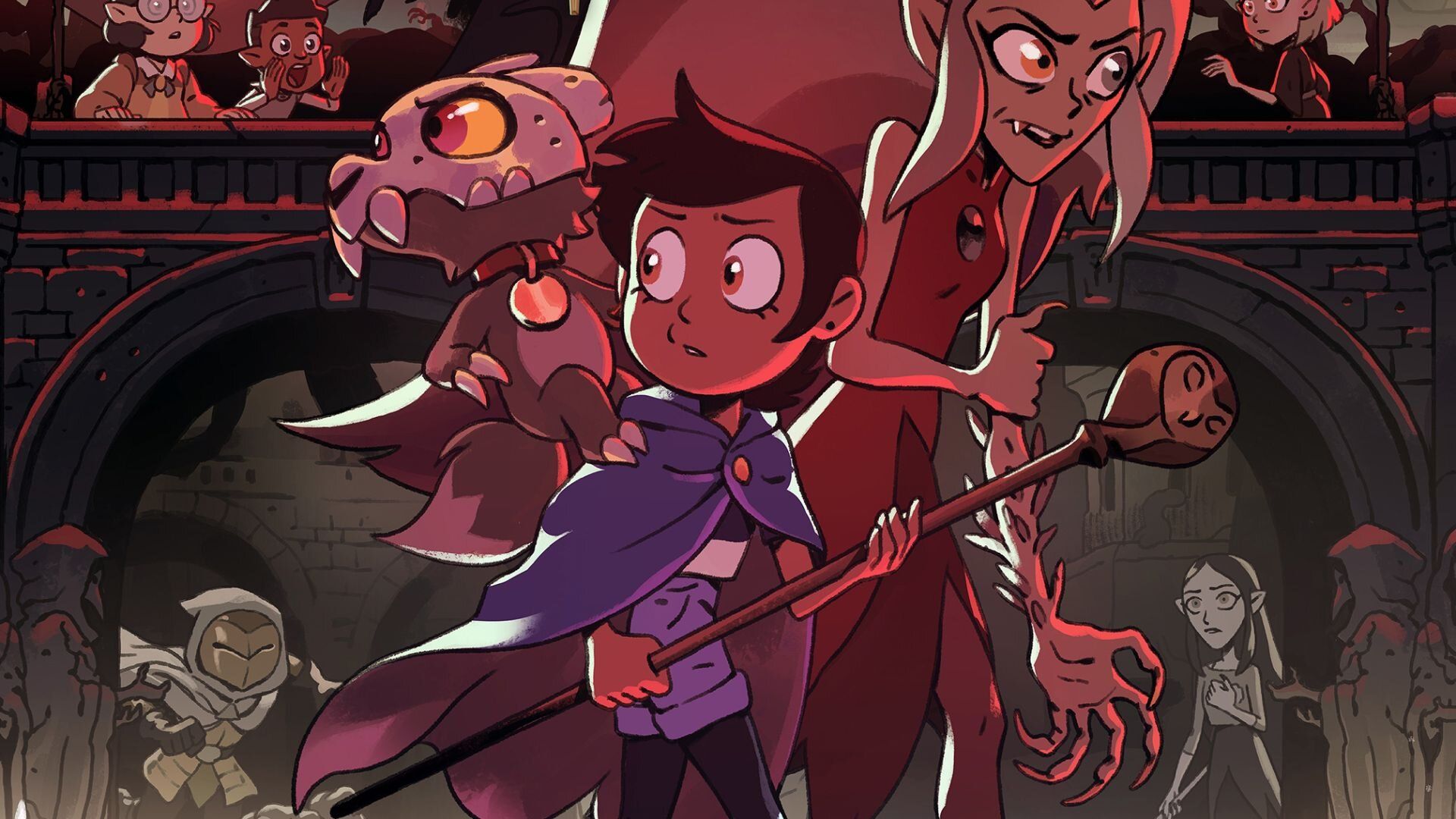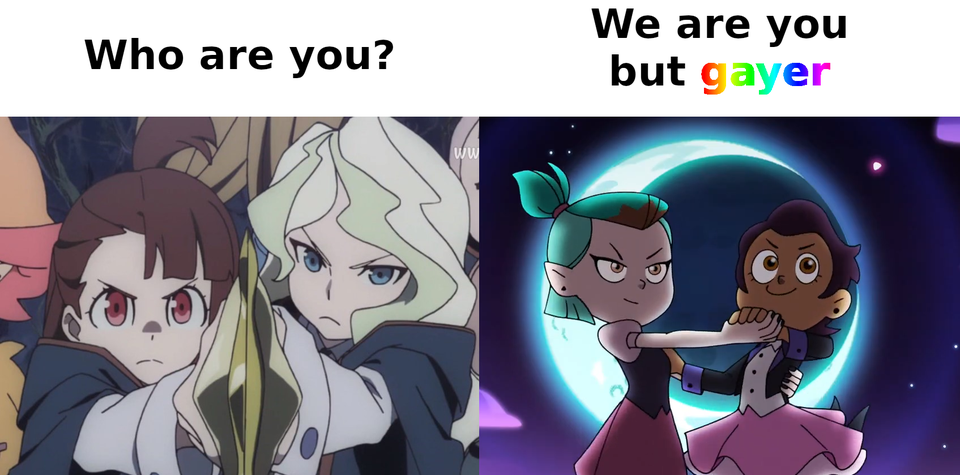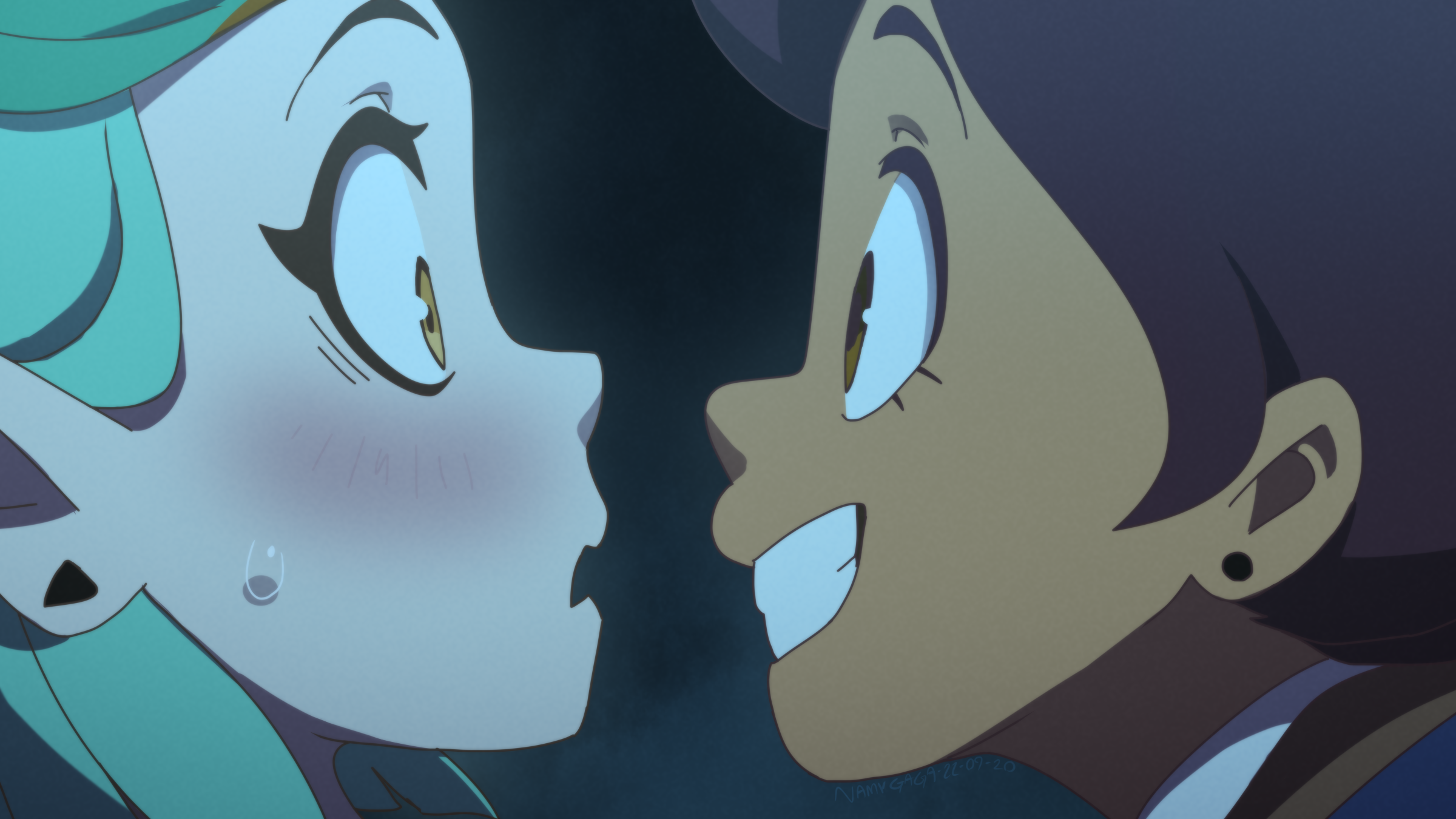Studio Trigger’s Little Witch Academia is a magical show, and yes that pun was very much intended. Joining Atsuko ‘Akko’ Kagari as she becomes a student at the illustrious Luna Nova Magical Academy, we watch her grow into a fish-out-of-water heroine who so many can relate to. The British institution is renowned for turning talented young girls into world class witches, so when Akko rocks up from her homeland of Japan, to say she doesn’t fit in is a massive understatement.
She’s loud, brash, clumsy, and struggles to prove herself again and again, but her enthusiasm is so infectious that she never stops trying, eventually emerging as the only girl capable of saving a world she holds so dear. She makes a small group of friends along the way, who fall in love with her beaming smiles and constant honesty, even if so much of the school is happy to cast her aside or talk behind her back. We’re always rooting for Akko right up until the show’s final moments, despite never canonically getting the girl she has an obscene amount of romantic chemistry with. Worst show ever. Cancelled.
But heck, that’s what fanfiction is for right? There’s that, and shows that seem to have been influenced by Little Witch Academia, such as Disney’s The Owl House. It builds upon many of Little Witch Academia’s foundational ideas to create something even greater. Atsuko Kagari and Luz Noceda have so much in common. They’re outsiders, failing to abide by the status quo and thus mocked as a consequence. Yet they persevere, pushing forward to make friends, learn magic, and become the inevitable heroes of their own adventure. In the end, they matter.
I can’t speak to Little Witch Academia having a direct influence on The Owl House, but there are so many parallels worth drawing attention to. I’ll start with our respective heroines, both of whom come from a background where they’ve spent their short lives ostracized for being different, their unorthodox personalities used as a quality to mock and bully instead of celebrate. We don't catch much of a glimpse into Akko's past beyond her desire to be a Witch on the same level of Shiny Chariot, but Luz's background is far more pronounced. She’s never fit in at school, so much so that her mother wishes her to attend summer camp where she can learn to act like a normal teenager. But she never goes to camp, instead finding herself transported to a foreign world where she finally finds a place to belong. Of course, leaving this life behind has consequences of its own that the show isn’t afraid to delve into.
The Boiling Isles is filled with hostile creatures, evil alliances, and goodness knows what else, but it’s different in a way that Luz welcomes. She quickly befriends a handful of supporting characters and begins her humble quest to learn magic. Luna Nova is significantly more fanciful, filled with witches who are definitely Tories and an education system that leaves behind those who don’t hail from a higher background. Akko supersedes these societal expectations much like Luz does, finding an unexpected teacher who takes them under their wing to fulfill her true potential. It’s all so sweet and saccharine, poking fun and taking inspiration from the likes of Harry Potter while eventually surpassing it. None of the creators are transphobic either, so that’s nice.
Ursula Castillis and Eda Clawthorne are so alike, initially burdened by young girls they must care for and teach before realising that their very presence betters them as people, helping them view the world from a wider, more sympathetic perspective while simultaneously dealing with their own demons. Each character in The Owl House has a meaningful character arc much like Little Witch Academia, all tying into the eventual development of Akko and Luz as they become heroines to be proud of. They take pride in who they become, while acknowledging their shortcomings and how their enthusiasm might have let loved ones down along the way. It’s adorable, and resonates with young and old viewers alike.
There’s also the romantic parallel of Lumity and Diakko. Both Diana and Amity come from rich families, have mint-green hair, and are expected to live up to a legacy they are eager to abandon. They each begin the show as brash bullies, unwilling to associate with our respective heroines as they view them as being beneath their very existence. This harsh demeanour eventually subsides to reveal a touching centre lined with gentle care, with Amity and Diana growing to befriend and love the quirky girls they once sought to demonise. Only one relationship becomes a canon romance, but art from Studio Trigger and ample amounts of fan support hints that perhaps Akko and Diana were once destined for something more. It feels like the beta test for The Owl House, as if Dana Terrace wanted to craft her own magical adventure that touched on certain tropes while simultaneously crafting something entirely new with a darker universe.
Little Witch Academia concludes with Akko and Diana teaming up to save the world alongside all of their fellow witches. They smile and hold hands before unleashing a spell that is totally just a product of gals being pals. Other episodes have Akko socialising with Diana’s family, with the rich girl defending her friend’s honour from a family who seeks to make fun of her. There’s also an instance where a bee that makes people fall in love stings Diana and has her develop temporary feelings for Akko. I can keep listing episodes that can easily be interpreted as sapphic metaphors but I’ll stop myself. Akko and Diana are in love and you cannot prove me wrong, and the same declaration can be applied to Luz and Amity, two characters who expand on everything that made their forebears so special.
Maybe I’m reading too much into things, but on the surface Little Witch Academia and The Owl House are linked in a way that feels unmistakable. I wouldn’t be surprised if the latter’s shortened third season concludes with Luz and Amity teaming up to save the world using their combined power of love. It’s cheesy, but encapsulates everything the show stands for in terms of representation, inclusivity, and the traditional whimsy that comes with experiencing a magical world. These witches gay, good for them.

